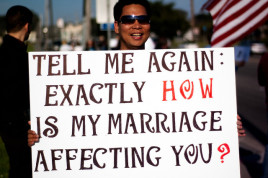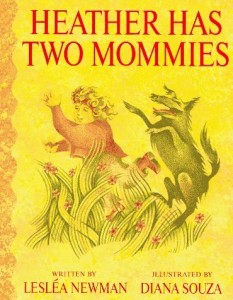Today, the Irish people vote in a referendum on gay marriage. Is a plebiscite the right way to take such a decision, should the majority have the right to deny basic human rights to a minority?
In case you missed it, we are republishing this post from an Irish student at Cambridge University.
Michael Angland, welcomes the referendum as a ‘national conversation’. Writing on the Get Real website, a termly University of Cambridge student publication written, edited and produced by the LGBT+ community in Cambridge and its allies, he argues that this is about building a fairer society, and despite the risks, a referendum is better than top down legal reform.
Here we republish his article, Yes to a national conversation……..
My civil liberties are being put to a popular vote
It seems unjust that the mainly heterosexual population of Ireland will have the power to choose whether the love I experience and the relationships I engage in are to be considered valid in the eyes of the state. The unjust anachronism of marriage inequality should have been quickly and quietly righted by the Irish parliament, as its British counterpart did two years ago. In a way, the Irish referendum should highlight the fact that Britain’s closest neighbour is still catching up, shaking off the shackles of a constitution which enshrines the conservative patriarchal values of a bygone age, written under the watchful eye of the future Archbishop of Dublin.
The problem is, the mood among LGBT+ people and social liberals on the other side of the Irish Sea is much more complicated than this. Some relish the chance to become the first nation to enshrine an LGBT+ right by popular plebiscite. The last four months have given better exposure to queer issues in the media and on the streets than a thousand LGBT History Months could hope to provide, and the nation has heard many heartwarming and sobering stories of Irish gay men and women’s experiences. From Colin Farrell’s beautifully written tribute to his gay brother, who bravely dealt with ignorance, hatred and violence when he was in school, to a courageous Dublin priest revealing his sexuality to his parishioners during mass and calling for a ‘Yes’ vote. From Gaelic footballer and Cork legend Valerie Mulcahy sharing the difficult and often overlooked experience of being a gay woman in rural Ireland, to the Minister of Health coming out and taking a stand on the referendum – becoming the first openly gay Irish cabinet minister.
These personal stories from across the spectrum of Irish society may seem unremarkable to some young people, but they have brought the reality of LGBT+ people’s existence and struggles to the homes of people like my grandparents, whose generation in rural County Cork was largely undisturbed by the existence of openly gay people.
The fact that marriage equality has to even go the electorate, and that voters could conceivably reject it, is not at all ‘right’. But many things enshrined by law are neither right nor just, and as Podemos leader Pablo Iglesias recently reminded us, for those who strive for equality and justice, politics has nothing to do with being right, it is about being effective in creating a fairer society.
There is a tendency in the modern left to wall ourselves off in a secluded chamber of dogmatic correctness, backed up by Trotsky and Butler and Said, and to wait for the misguided masses to come grovelling to us, renouncing the error of their former ways. The recent history of the SWP tells us all we need to know about the efficacy of that tactic. Bypassing all of the hard work and getting same-sex marriage quickly legislated from on high might seem attractive, but I would prefer to take the risk of having a national conversation, which has the potential to fundamentally transform society for the better. Even should the worst happen and the referendum fail, the silences shattered and truths confronted in living rooms all over Ireland during the last few months bear testament to the value of the latter road.
Were I a libertarian, I would logically question why the state should have any say in who I could marry, and probably challenge whether there should be a state sanctioned institution of marriage at all. But as a believer in a shared society and a shared future, I see a special value in my home country validating and protecting me in law, especially if it results from a popular vote.
Prejudice will still thrive, even if the people in power make the right noises. The only way to minimise it is not through a quick-fix parliamentary vote but through the arduous path of meeting hatred with love, ignorance with education, anger with patience, and darkness with light. The referendum has put it up to each and every Irish person to do just that, and imagine how much sweeter justice will feel when it has been vindicated by our families, neighbours and friends, not by a detached bunch of political opportunists on Kildare Street.
Yes Equality /Tá Comhionannas
Michael Angland (GR. Features Editor)
Picture: David Goehring
You may also be interested to read Chris Creegan’s blog, Enniscorthy, equal marriage and the ’embrace of love’, drawing on novelist Colm Toibin’s contribution to the referendum debate:
Get Real also carried an article by Ronan Marron putting the counter argument – that the majority should not vote on minority rights.
……………………………………….
Pod Academy podcasts:
Don’t say Gay! About introducing children to different sexualities
.

Me, myself, I: Changing gay male identity – a discussion between Andrew Cooper and Jeffrey Weeks.
“GET REAL.,” is a termly University of Cambridge student publication written, edited and produced by the LGBT+ community in Cambridge and its allies for students of the University, Cambridge and the outside, “bigger,” world. It aims, through the coverage of important news stories and through its comment and features pieces to create a safe space for debate and discussion of LGBT+ related issues.
Tags: Gay marriage, Gay Rights, Irish Referendum



Subscribe with…